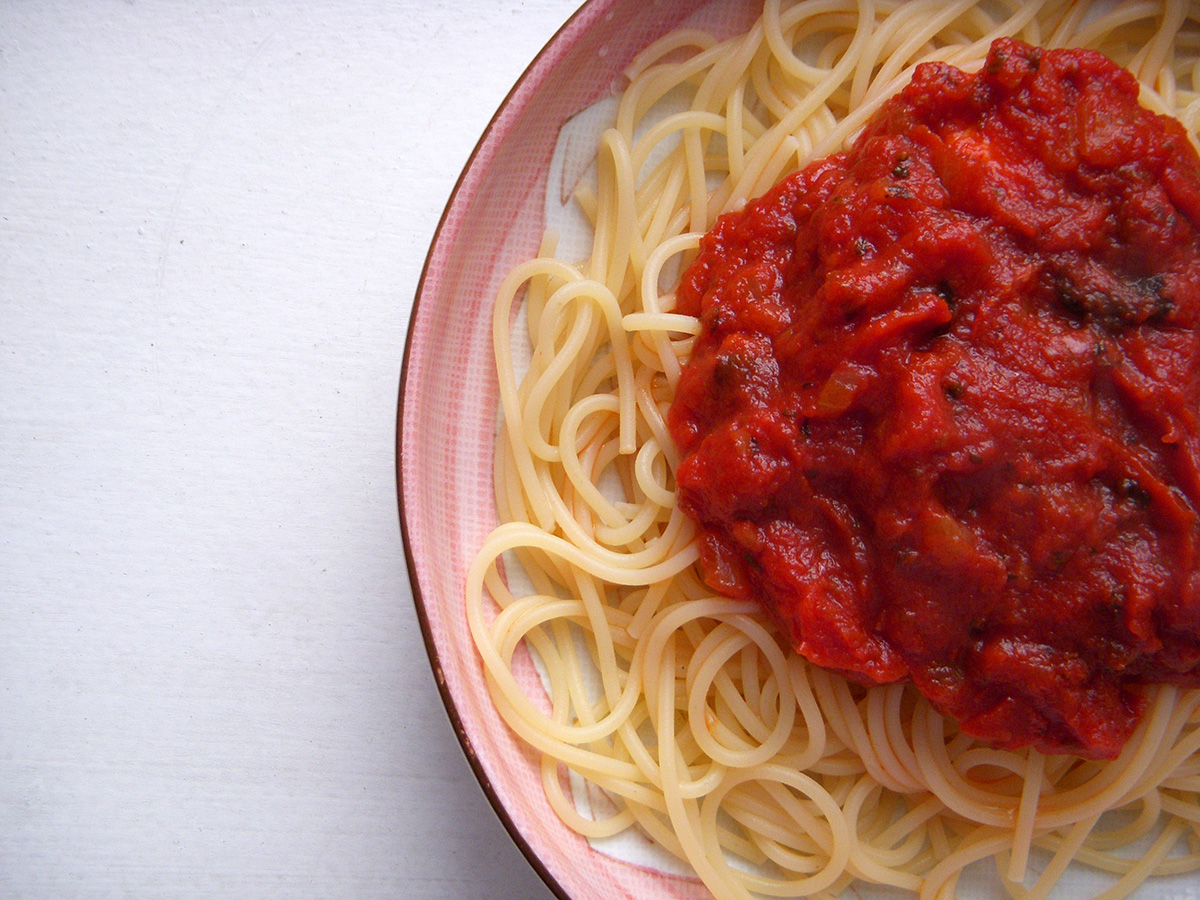What to Eat While Training for a Marathon

Spaghetti photo by Wendy on Flickr/Creative Commons
After an 18-mile run, you’re going to want to feast. Resist the urge, though, because comfort food binges are likely to derail your hard work on the course.
Put down the cheeseburger, and read these nutrition tips from registered dietitian Elizabeth Avery before your next run.
1. Carbo-loading is your friend.
Avery says roughly 60 percent of a regular runner’s calories should come from carbohydrates, such as pasta, bread, cereal, rice, fruits, vegetables, and dairy. (Great news, if you ask us.) Carbs are “the primary fuel for muscles during medium- and high-intensity aerobic exercise,” so eating up will help your performance.
Carbo-loading is especially important before long runs. “Proper carbohydrate-loading can delay fatigue and enhance performance, especially when it involves exercise lasting longer than 90 minutes,” Avery says. “Running a marathon without carb-loading is similar to trying to drive across the country without gas in the car.”
2. Eat before your runs.
“Always take in carbohydrate before starting a workout, even if it means you must get up at 5 a.m. to digest it properly,” Avery stresses, adding that you should shoot for one gram of carbohydrate per kilogram of body weight an hour before you set off. (If that’s impossible, or you’re doing a light workout, aim for 30 grams of carbohydrate.) Good pre-workout foods include milk, granola, bananas, toast with jam or peanut butter, or oatmeal in the morning; or a chicken sandwich, bean burrito, baked potato and veggies, salad and a roll, or pasta later in the day.
3. And during your runs.
If you’re embarking on a long journey, you’ll need to replenish carbohydrates, sodium, and potassium, Avery says. Turn to sports drinks and energy gels.
4. And after your runs.
Carbohydrates are also a big part of recovery, but protein enters the game here, too. “Carbohydrates are essential for replenishing our muscles’ and liver’s energy stores so you can start with a full tank the next day,” Avery explains. “Protein is necessary to repair the wear and tear on our muscles and tissue.”
After your run, down something like a PB&J, eggs and toast, cereal and yogurt, or pasta with chicken or fish. Last but not least, don’t forget to re-hydrate.
5. But don’t go crazy.
Logically, running all the time is going to make you hungry—but don’t throw common sense out the window. “Due to increased appetites, many runners—especially inexperienced ones—do not struggle so much with unwanted weight loss as they do weight gain,” Avery cautions.
To stay slim but satisfied, load up on fiber, lean protein, and healthy fats, and skip high-calorie, low-nutrient foods. Don’t limit yourself before, during, and after a workout, but try to make smart choices instead of eating everything in sight.


